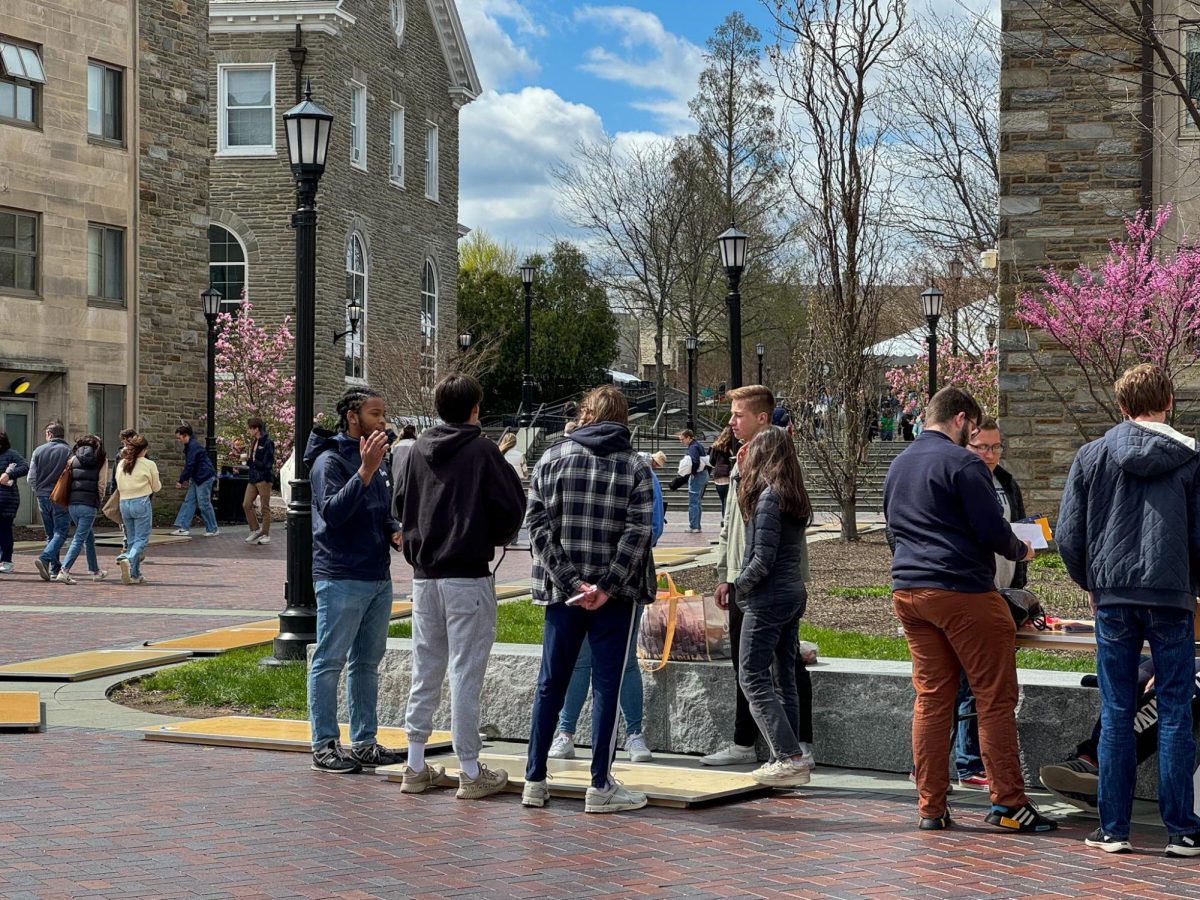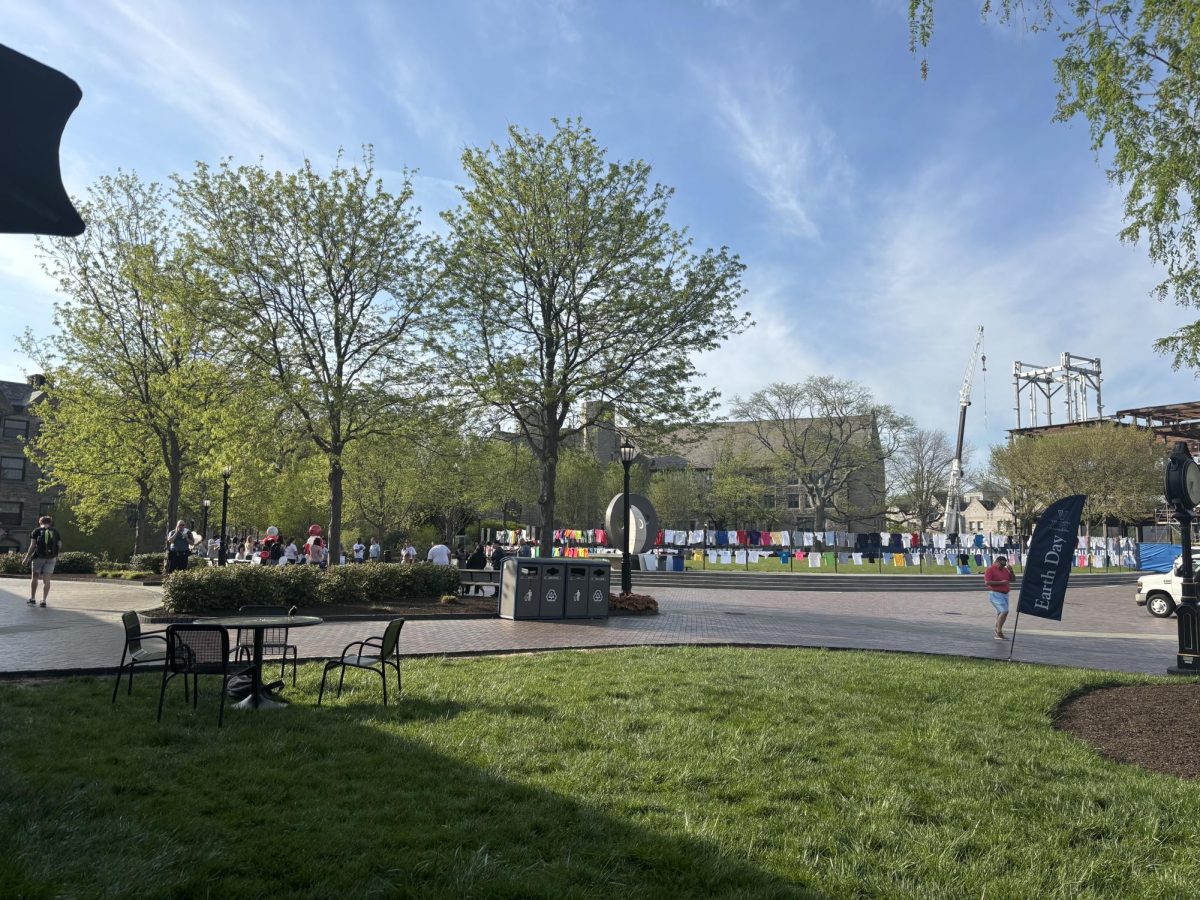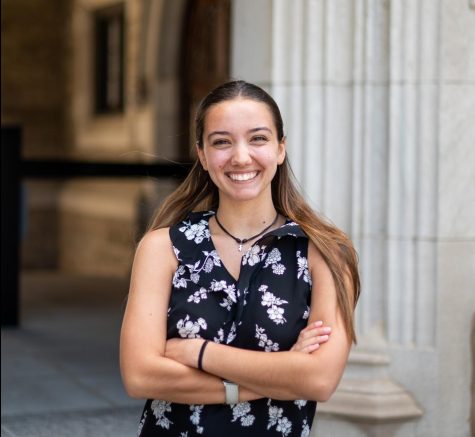On Tuesday, Oct. 29, Dr. Terence Sweeney gave the annual lecture for the Augustine and Culture Seminar Program.
Sweeney is an assistant teaching professor at Villanova University working in both the Humanities Department and the Honors Program. Sweeney earned his Ph.D. in St. Augustine and the Community at Villanova in the Philosophy Department and applied The Confessions, a book written by St. Augustine, to the daily life of audience members.
This lecture especially was geared towards first-year Villanova undergraduate students, as all freshmen at the University are required to take ACS, and a large majority read The Confessions.
Sweeney began his lecture describing the unique opportunities Villanova gives its students. Being a Villanova student, Sweeney explains, allows individuals to “explore and engage in Augustinian ethics and spirituality of life.” According to Sweeney, this opportunity allows students to follow Augustine’s interpretation of what it means to be human: to be a lover.
Throughout most of our lives, Sweeney further explains, we have not been good lovers. This can be traced back to the story of Adam and Eve, individuals who chose desire instead of God.
To make ourselves better humans, Sweeney explained, “…we need to learn how to love well.” However, loving well goes awry, as Sweeney continued, when “…we get the order of our loves out of whack.”
However, loving others does not mean that we should not love ourselves, Sweeney clarifies.
“Augustine takes it as a sort of a baseline assumption that we love ourselves,” he said. “And you should love yourself.”
Sweeney continued the lecture with a segment on lust, specifically the lust for power. Domination, as Sweeney illustrated, is not true love.
“When you want to just dominate people, you don’t really care about them,” he said.
Instead of solely caring about overpowering others, Sweeney wanted his audience to ask the question “How can I help you?” This question centers on another person instead of a focus on the individual or solely on domination.
Sweeney turned to The Confessions and connections between Book 4 of St. Augustine’s writing and his developed idea of focusing attention on others beside ourselves. In this book, Sweeney elaborates, Augustine is reflecting on a relationship with a close friend that had passed away, coming to the idea that he loves his friend because he thinks like him, he is similar to himself.
“Augustine had made his friend think what he thinks,” Sweeney said. “Augustine loved his friend because his friend thought just like him.”
Sweeney explained that this is a bad relationship because when you are working hard to make an individual similar to yourself, you do not see and appreciate the person they are.
Sweeney then connected this segment from The Confessions to its real-world implications. Many times, in social, political, and economic circumstances, we do not love people we do not agree with. This causes greater division and the spread of hatred. To really love someone other than ourselves, we must love people of different views.
“If you are loving someone you don’t agree with, it’s a good sign you are loving someone besides yourself,” Sweeney said.
Sweeney explained what individuals must do to start loving other people. These include saying people’s names and acknowledging their existence, truly listening to others, telling the stories of other individuals and doing good especially through words.
Sweeney completed the lecture with a description of the gift St. Augustine gives to readers through his writing. Along with being a confession of sin, The Confessions is a gift of truth, of fault, of praise and of love. St. Augustine’s words, Sweeney expressed, are his way of expressing and sharing his love, and doing good for others.







